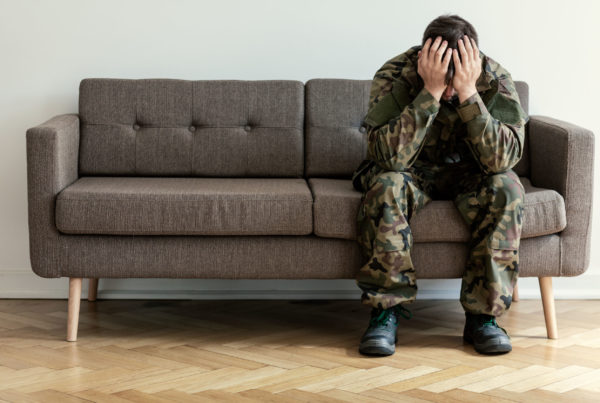”Kansas, are you interested in becoming a better communicator? This week's article is all about communication in relationships! We hope you learn something new and can take these tips to improve your relationships.
Reading time: 8 Minutes
MWi Hacks:
- Become a better communicator with the principles in this article.
MWi Summary:
- Open, honest communication helps partners understand each other’s needs, resolve conflicts, and deepen connection, preventing misunderstandings and resentment.
- Body language, tone, and facial expressions often speak louder than words. Active listening, empathy, and undivided attention build trust and foster understanding.
- Communication can be learned and refined through practice. Build intimacy, address key issues together, and reflect on how to improve communication to create a healthier relationship.
- Focus on resolving the issue without blame. Use “I feel” statements, avoid jumping to conclusions, and seek professional help if communication struggles persist
Importance of communication
Good communication is an important part of all relationships and is an essential part of any healthy partnership. All relationships have ups and downs, but a healthy communication style can make it easier to deal with conflict and build a stronger and healthier partnership.
We often hear how important communication is, but not what it is and how we can use good communication in our relationships.
What is communication?
By definition, communication is the transfer of information from one place to another. In relationships, communication allows to you explain to someone else what you are experiencing and what your needs are. The act of communicating not only helps to meet your needs, but it also helps you to be connected in your relationship.
Communicating clearly in a relationship
Talk to each other. No matter how well you know and love each other, you cannot read your partner’s mind. We need to communicate clearly to avoid misunderstandings that may cause hurt, anger, resentment or confusion.
It takes 2 people to have a relationship and each person has different communication needs and styles. Couples need to find a way of communicating that suits their relationship. Healthy communication styles require practice and hard work. Communication will never be perfect all the time.
Be clear when communicating with your partner, so that your message can be received and understood. Double check your understanding of what your partner is saying.
When you talk to your partner, try to:
- set aside time to talk without interruption from other people or distractions like phones, computers or television
- think about what you want to say
- be clear about what you want to communicate
- make your message clear, so that your partner hears it accurately and understands what you mean
- talk about what is happening and how it affects you
- talk about what you want, need and feel – use ‘I’ statements such as ‘I need’, ‘I want’ and ‘I feel’
- accept responsibility for your own feelings
- listen to your partner. Put aside your own thoughts for the time being and try to understand their intentions, feelings, needs and wants (this is called empathy)
- share positive feelings with your partner, such as what you appreciate and admire about them, and how important they are to you
- be aware of your tone of voice
- negotiate and remember that you don’t have to be right all the time. If the issue you are having is not that important, try to let the issue go, or agree to disagree.
Non-verbal communication
When we communicate, we can say a lot without speaking. Our body posture, tone of voice and the expressions on our face all convey a message. These non-verbal means of communicating can tell the other person how we feel about them.
If our feelings don’t fit with our words, it is often the non-verbal communication that gets ‘heard’ and believed. For example, saying ‘I love you’ to your partner in a flat, bored tone of voice, gives 2 very different messages. Notice whether your body language reflects what you are saying.
Listening and communication
Listening is a very important part of effective communication. A good listener can encourage their partner to talk openly and honestly. Tips for good listening include:
- Keep comfortable eye contact (where culturally appropriate).
- Lean towards the other person and make gestures to show interest and concern.
- Have an open, non-defensive, fairly relaxed posture with your arms and legs uncrossed.
- Face the other person – don’t sit or stand sideways.
- Sit or stand on the same level to avoid looking up to or down on the other person.
- Avoid distracting gestures such as fidgeting with a pen, glancing at papers, or tapping your feet or fingers.
- Be aware that physical barriers, noise or interruptions will make good communication difficult. Mute telephones or other communication devices to ensure you are really listening.
- Let the other person speak without interruption.
- Show genuine attention and interest.
- Use assertive statements like ‘I feel…about…’, ‘What I need is…’.
- Be aware of your tone.
- Be prepared to take time out if you are feeling really angry about something. It might be better to calm down before you address the issue.
- Ask for feedback on your listening from the other person.
Improving communication in a relationship
Open and clear communication can be learnt. Some people find it hard to talk and may need time and encouragement to express their views. These people may be good listeners, or they may be people whose actions speak louder than their words.
You can help to improve your communication by:
- building companionship – sharing experiences, interests and concerns with your partner, and showing affection and appreciation
- sharing intimacy – intimacy is not only a sexual connection. Intimacy is created by having moments of feeling close and attached to your partner. It means being able to comfort and be comforted, and to be open and honest. An act of intimacy can be as simple as bringing your partner a cup of tea because you can tell they are tired
- finding one or 2 key issues you can agree on, such as how finances are distributed, a goal you have, or your parenting styles or strategies.
To improve the way you communicate, start by asking questions such as:
- What things cause conflict between you and your partner? Are they because you are not listening to each other?
- What things bring you happiness and feelings of connection?
- What things cause you disappointment and pain?
- What things don’t you talk about and what stops you talking about them?
- How would you like your communication with your partner to be different?
If possible, ask these questions with your partner and share your responses. Consider, and try, ways to communicate differently. See whether the results improve your communication.
When you are more aware of how you communicate, you will be able to have more control over what happens between you. While it may not be easy at first, opening up new areas of communication can lead to a more fulfilling relationship.
Some things are difficult to communicate
Most of us find some experiences or topics difficult to talk about. It may be something that is painful or makes us feel uncomfortable. For example, some people find it difficult to express their emotions. It is often the things that cannot be talked about that hurt the most.
If you are having difficulty expressing yourself, or talking with your partner about something, you might find it helps to talk to a counsellor.
Managing conflict with communication
Tips for how to manage conflict with communication include:
- Avoid using the silent treatment.
- Don’t jump to conclusions. Find out all the facts rather than guessing at motives.
- Discuss what actually happened. Don’t judge.
- Learn to understand each other, not to defeat each other.
- Talk using the future and present tense, not the past tense.
- Concentrate on the major problem, and don’t get distracted by other minor problems.
- Talk about the problems that hurt your or your partner’s feelings, then move on to problems about differences in opinions.
- Use ‘I feel’ statements, not ‘You are’ statements.
Seeking help for communication issues
If you can’t seem to improve the communication in your relationship, consider talking with a relationship counsellor. Counsellors are trained to recognise the patterns in a couple’s communication that are causing problems and to help change those patterns, as well as providing strategies, tips and a safe place to explore issues.
You could also consider doing a course that is relevant to your relationship. It is better to act early and talk to someone about your concerns, rather than wait until things get worse.
Relationships and Communication. Retrieved from https://www.betterhealth.vic.gov.au/health/healthyliving/relationships-and-communication




